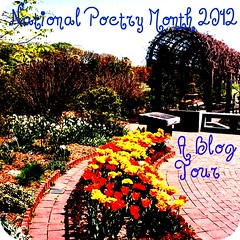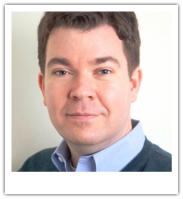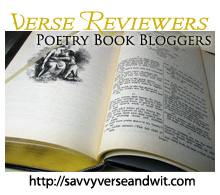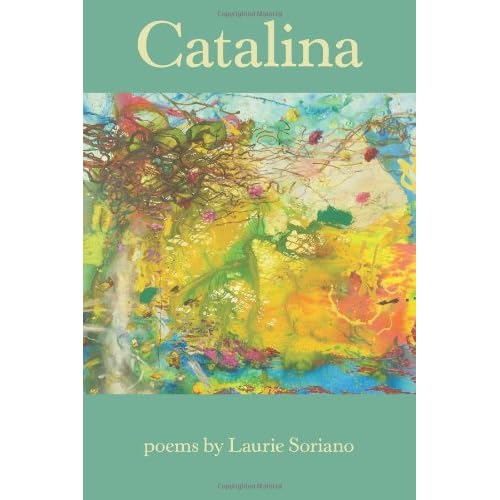When you fiercely believe in a poet’s talent and their collection, you want to do everything you can to promote it and him/her to a wider audience. You stick their book into strangers’ and friends’ hands and say, “Read this.” Sometimes, that works and sometimes it doesn’t, but if you truly believe in a collection, you press onward.
Today, I’ve got a deeply moving guest post from poet Erica Goss, who I featured during the 2012 National Poetry Month Blog Tour with a review of her book, Wild Place. She will talk about the joy of publishing her collection, but also the deep sadness that came with it when her father’s body was discovered in the wilderness.
Following the guest post, I hope that you will enter for 1 of 2 copies I am going to giveaway to 2 lucky readers anywhere in the world. Without further ado, please welcome Erica Goss.
On March 29, 2011, I checked my email late in the afternoon. The subject line “Chapbook Acceptance: Wild Place” caught my eye immediately. I opened the message and read, “Thank you for submitting to us. Your manuscript has been accepted for publication.” Blue capitals announced the sender as Finishing Line Press in Kentucky.
Finishing Line. I loved that name and its connotations: making it to the end and winning. But on March 29, 2011, “finishing line” meant something else. Three weeks earlier, some teenagers out hiking had discovered my father’s body in a remote part of Western Washington State. That was his finishing line: death from exposure, hunger, and thirst, brought on by dementia.
Over the following months, I struggled with grief and depression. Some days were simply too hard to bear. My friends congratulated me about the book, but I felt compelled to qualify their enthusiasm with reminders that I was grieving my father. As much as I wanted to shout with joy over the book’s imminent publication, I was unable to feel much happiness at such a time.
The book did give me some welcome distraction from dealing with my father’s death and trying to put his affairs in order. Choosing cover art, formatting the book, deciding which poems to keep and which to delete, absorbed many hours. At the back of my preparations, however, my father’s death lurked, a persistent ache in the pit of my stomach.
It took me some time to realize that I was living in one of those ironic situations that make good poems. The best poetry is tinged with its opposite emotion; to quote Chase Twitchell, “remember death.” As Linda Pastan writes in her poem “The Death of a Parent,”
Move to the front of the line a voice says, and suddenly there is nobody left standing between you and the world, to take the first blows on their shoulders.How often I wanted to share the news of my book’s publication with my father. In phone conversations, I’d told him about sending the book to various contests and small presses. The dementia that had been taking his brain away would lift for a little while, and he seemed genuinely interested. Then, abruptly, he would say, “Well, thank you for calling!” and hang up. When he did that, I knew that he had probably forgotten who I was, and ended the conversation to cover his embarrassment.
My father was never more attentive than when I read poetry to him. A former professor of German, he would fix his hazel eyes on me with the look he must have given his students when they mispronounced something, and listen intently. At the end, he would usually say, “Huh! Too bad he was such an ass,” or some other insulting remark about the poet. That’s when I knew my real father was back, at least for a moment. “Even jerks can write good poetry,” I would respond, hoping for his sudden laugh or the way he would smack the table, making us all jump. But more and more often, he would just look at me, puzzled, and turn back to the television.
My father loved run-down, decaying, decrepit places. This explains why he spent the last few years of his life, before his dementia worsened and he moved to Washington to live with his sister, in a tiny village in Northern California called Locke. Locke sits in the San Joaquin-Sacramento Delta, where two of California’s largest rivers meet. Eleven hundred miles of poorly maintained levees protect Locke, the other small towns of the Delta, and its surrounding orchards and farmland.
The Sacramento and San Joaquin rivers, unruly by nature, seep under the levees, giving Locke and the whole area a lumpy, moldering appearance. Artists love Locke’s tilted buildings and its atmosphere of benign neglect (Locke is the setting for “My Father at Seventy,” one of the poems in Wild Place). The first few years my father spent in Locke were happy ones; he loved the small town vibe, the artists and writers who lived in ramshackle houses where the river bubbled up through the basements, and being so close to Nature. That was before he stopped calling, stopped paying his bills, stopped cleaning his house.
Wild Place’s cover photograph, taken by San Jose artist and architect Howard Partridge, shows a view of the Sutro Baths on the coast of San Francisco. It’s clear from the photograph that the Pacific Ocean is reclaiming that piece of land, wearing down the seawall and the surrounding cliffs. Here’s another place that water will eventually take back, just like in the Delta a few miles east.
Is this a metaphor for death? Maybe. But I’d rather think of it as a demonstration of Nature’s obdurate personality. As the French poet Saint-John Perse (Alexis Leger) writes: “In vain the surrounding land traces for us its narrow confines. One same wave throughout the world, one same wave since Troy rolls its haunch toward us.”
One same wave. “The Death of a Parent” gives us this image:
The slate is wiped not clean but like a canvas painted over in white so that a whole new landscape must be started, bits of the old still showing through.It’s been over a year since that bipolar month of March, 2011. I’m learning what it means to grieve. Some days I feel my father’s loss as an acute pain; other times it’s heavy and dull, like an overcast, humid day. I have gotten better at allowing myself to feel unqualified joy at the publication of Wild Place. And I look for those places where the old bits show through.
Thanks, Erica, for sharing your story with us. I know that your father would be proud of you, no matter what. Also, please check out this poem she wrote in response to a prompt about what she would tell her 16-year-old self.
For those of you interested in this stunning collection, please leave a comment here about your own father. Deadline to enter will be May 31, 2012.


















